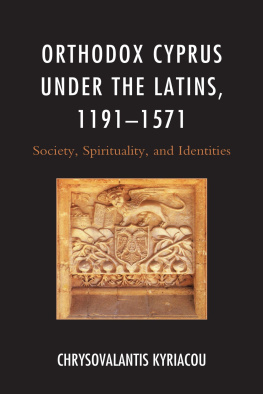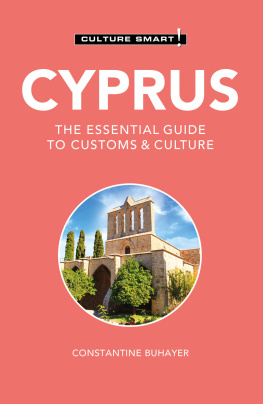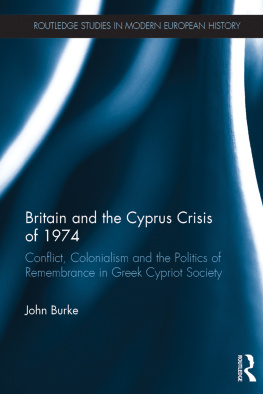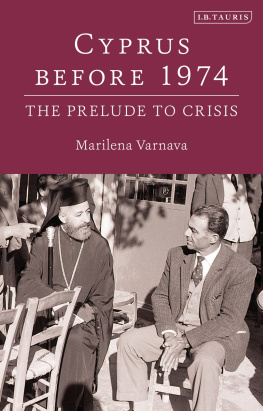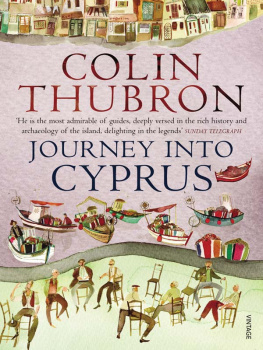For the student of the history of Cyprus, the essays collected together in this book are of especial interest. They are so in their own right, which is to say as self-standing analyses of the various topics with which they are concerned, extending from the sixteenth century through to our own times. This is hardly surprising. Paschalis Kitromilides is one of the leading historians of the intellectual and social trajectory of modern Greek culture.
More especially, however, their fascination derives from the fact that they trace a personal odyssey of engagement with modern Cypriot evolution against the backdrop of the contemporary travails of the island, above all defined by the tragedy of 1974. It is the inherent interplay between the past and present, the then and now, which gives them in retrospect real importance as a sort of document of the shifting contexts in which they emerged.
That document is of a particular kind. Kitromilidess own background, not least educational, defines him as the product of a liberal, cosmopolitan, self-consciously modern and European strand running through Cypriot society during the decades following the Second World War. Religious attachment to Orthodoxy so central to Kitromilidess personal scholarship has been perfectly compatible with secular values, just as deeply rooted Greek identity can run alongside an essentially diverse and open concept of the natural character of life within the island itself.
Yet there have been other powerful elements at work in (and on) late colonial and postcolonial Cyprus jarring with such a worldview and which drove a future at an awkward tangent to it. Kitromilidess call at various junctures in these essays for a self-critical understanding of how Cyprus has found itself painfully wounded by internal division, and exposed to the manipulation of hostile or wholly self-interested outsiders, may be seen as a lament for roads not taken, those alternative possibilities identified at one point (p. 106), and characterized by tolerance, flexibility and experimentalism too often spurned for something narrower, harsher and ultimately self-defeating. The author shows himself keenly aware, however, that such a self-awareness can come more easily to a long-time Cypriot expatriate even one in Athens than to those caught up in the immediate struggles within the island.
One of the striking aspects of this collection is the remarkable consistency of the critique, and the vision of Cyprus itself that emerges from it. I shall just underline a few dimensions. Key, as a preliminary to everything else, is the cultural exceptionalism of the island in its relationship to the hugely varied pattern of societies and political structures in the Aegean and eastern Mediterranean worlds. The island was always pushed and pulled in multiple directions. In Kitromilidess understanding, any mono-vision of Cypriot identity and destiny shows scant understanding of the deep historical currents involved.
What follows is an emphasis on what the author terms on several occasions the creative osmosis inherent in Cypriot affairs over centuries, a process rooted in the internal dialogue amongst Cypriots themselves. This is something that has gone on, almost without interruption, despite those forms of external conquest and domination to which Cyprus has recurrently been subject. Not even the era of Ottoman rule after 1571 froze it completely, though it slowed down the pace at which it proceeded; the rigidity and limitations of the post-1960 constitution, paradoxically, had a similar effect. The tragedy of 1974, apart from the purely physical and scarring realities of invasion and partition, lies in the way in which a natural dialogue amongst the diversity of Cypriots has been frozen in aspic.


